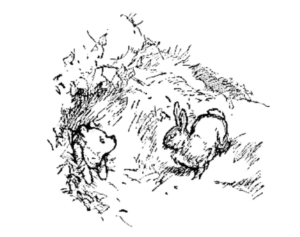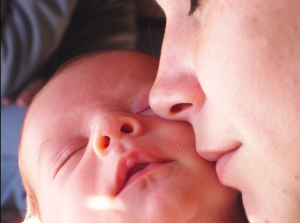Posts by Natalie Hart
The musical Fiddler on the Roof has a poignant song, “Sunrise, Sunset,” a beautiful waltz about how quickly children grow and change.
Sunrise, sunset
Sunrise, sunset
Swiftly fly the years
One season following another
Laden with happiness and tears
Sunrise and sunset are also beginnings and endings–start and end of the day, end and start of the night, respectively. Each event a beginning and an ending at the same time. It’s difficult to tell, just by looking at a photo, whether it is a sunrise or a sunset, a start or a close.
I’ve been doing a lot of simultaneous beginnings and endings in the last month, moving into a new house and living with my boyfriend in a joint space for the first time, during the same few weeks that my father entered hospice care and then died the day after Christmas.
Both events were intense. Each one involved shedding old things to make room for the new reality. For the move, that meant figuring out what of our old lives and prior stuff we were going to keep. For my Dad, it meant ironing out legal and financial details of passing down an estate, dozens of farewell phone calls, and stripping away anything that got in his way of dying the way he wanted to. It also meant a great big, final goodbye. And the start of a new reality.
Each event got in the way of the other. If I spent time with my dad, I couldn’t unpack. And if I took time to unpack, I couldn’t spend time with my dad. Oh, the internal conflict. Of course, once it became clear that his time with us was drawing to a close, there was no more being pulled in two directions: it was all Dad all the time.
That clarity was an odd gift. There was really only one focus: helping him and our family make that transition. I remember a similar gift of clarity of purpose from the four days I took care of my cousin as she was dying. Regular life with all its competing demands was a rude shock. Is a rude shock. My ramped up anxiety at ordinary tasks and inability to concentrate tell me I’m having a hard time with these simultaneous transitions.
So. Our writing. And our poor protagonists.
So many of the things we put them through involve simultaneous beginnings and endings. Lean in to it, lean on your characters harder to highlight the push and pull. If a major event in your novel is a new beginning, throw a hard ending in there to complicate both. If a hard ending, throw in a new beginning–remembering that not everything that is new is good […]
Read MoreI love the Olympics. Summer and Winter. The athletes from all over the world, The sports most of us only see every four years. The glorious variety of the human body and what it can do. Let me see it all!
The television coverage is mostly about winners and the medal count: who won, who was supposed to win but didn’t, how much they won by, or how little, how much or how little they lost by, who and which country has the most medals, most golds.
But the more race- and event-side interviews I heard, the more I saw that the athletes focused on other things: their game plan, their training, their mental and physical fitness, their support system. For some, executing their game plan would result in a medal. For the majority of competitors, it would not.
Yet they were all Olympians.
And Olympians seem to measure success differently from the shiny-reward-obsessed media and public.
Chris Chavez asked Connor Mantz, a U.S. marathoner who came in 8th at the Olympics how he evaluated success for the race. Mantz said,
“The build for it was really, really good. I think my fitness was great. I think I was in a great spot, physically. The more I review it, I probably underperformed for how fit I was, but it’s hard to evaluate…. I was going in with the mentality that I could medal even before we left. I just knew my fitness was at a different level. Yes, eighth is great and I’m happy about that, but I don’t think my fitness really showed in this marathon. I think I have another level that I’m trying to bridge the gap to.”
If you listen to the entire hour-long interview, you can see how granular Mantz gets, all the different ways he considers his performance, which was a 2-hour result of years of work and training. He’s happy with the result, even as he sees room for growth and improvement.
American sprinter Noah Lyles talked with great confidence (some called him cocky) at the beginning of the Games. Commentators gushed at the possibility that he could win gold in the men’s 100m and 200m. He won gold in the 100. But in the 200, a race he expected and was expected to win, he got bronze and had to leave the track on a wheelchair because he was physically struggling to breath and walk after running that race with COVID. Shortly after, he gave a trackside interview to Lewis Johnson:
“It’s taken its toll for sure, but I’ve never been more proud of myself for being able to […]
Read More
That is, you are stuck.
Whether you’re stuck because you got yourself in that situation or because of life circumstances…
Being stuck is kind of horrible
When Winnie-the-Pooh found himself stuck halfway in and halfway out of Rabbit’s front door (because he ate too much honey) he wasn’t thrilled:
“Oh, help!” said Pooh. “I’d better go back.”
“Oh, bother!” said Pooh. “I shall have to go on.”
“I can’t do either!” said Pooh. “Oh, help and bother!”
Things went from bad to worse when Christopher Robin decided that Pooh would have to stay there for a week without meals:
Bear began to sigh, and then found he couldn’t because he was so tightly stuck; and a tear rolled down his eye, as he said:
“Then would you read a Sustaining Book, such as would help and comfort a Wedged Bear in Great Tightness?”
I was recently a wedged bear and I can relate.
All I wanted was to be an empty nester. My children were in their early twenties, and I’d been single-parenting them for eight years. My marriage ended when my now-ex was arrested for a sex crime, so it’d been an intense eight years. Child 1 had moved out and I was focused on creating the conditions for Child 2 to follow, when Child 1 had to come back. I both love and like my children, I’m a pretty good parent of adults, and I always want to be a refuge for them, so none of this was the end of the world.
But it meant that I couldn’t take the next step in my life: sell my house and buy a new house with my boyfriend of 6 years so we could live together. We’d been talking about it for a year. And couldn’t make progress until my kids were on their own.
It was none of our fault that rents in our small city have skyrocketed, that employers like to promise near-full-time hours but not deliver, which makes it hard for young people to earn enough to afford not to live at home. I didn’t want to burden my children with my frustration–they were feeling stuck, too. So I was mostly keeping it all inside.
And then I cried in the grocery store on Super Bowl Sunday because I couldn’t find my boyfriend.
I am a middle aged woman. Generally rational and quite independent. A miscommunication about location usually made me laugh, but that day it was the last straw. I cried and blurted out how stressed out I was. It lasted no more than 30 seconds.
We wound up having a great afternoon and evening with my kids, but my boyfriend took my tears as a call to action I didn’t know I was making. He mobilized his network, which found a landlord with an available apartment. My children took it from there, got approved, and were moving out of their childhood home and into an apartment in their dream neighborhood within ten days.
Just like that, we were all unstuck.
Consider going uncharacteristic for your stuck characters
Are any of your characters stuck? How do they respond? Do they keep it all in? Or bash their head against the wall? Sneak around the wall? Deny that there is a wall? Convince themselves that they don’t even want the thing that they really want?
Does anyone […]
Read MoreThe only thing I remember from my childhood reading of Doctor Dolittle (a 1920s series of stories by Hugh Lofting about a man who could understand and speak with with animals) is the pushmi-pullyu. I loved the idea of an antelope-like creature with no tail but a head on each end. How did it move? How did it poop? Lofting never explained. Only one head slept at a time so you could never sneak up on it, which is why it’d never been caught. It ate with one head and spoke with the other so it never talked with its mouth full, which was important to this self-described polite and shy animal. Its great-grandfather was the last unicorn. Unicorn! Even saying its name – push-me-pulley-you is how I pronounced it – made me giggle.
As an adult, I recognize that it’s an easy illustration of being pulled in opposite directions. These days, the poor pushmi-pullyu is mostly used to demonstrate how unhealthy organizations or doomed political groups behave: paralyzed by polarization, tearing themselves apart, fighting against their own interests.
We can use that to inspire our writing, of course. Putting our characters in situations when they’ll feel pulled in opposite directions is a good way to highlight internal conflict and add tension.
But the two heads in the original fictional animal aren’t antagonistic towards each other; they aren’t even competitive with each other. They’re just facing in opposite directions. Much like the earth experiencing a summer and winter solstice: the northern hemisphere may have had the longest night/shortest day of the year last night, and the southern hemisphere the shortest night/longest day, but the two hemispheres aren’t in opposition, they’re just opposites.
The pushmi-pullyu doesn’t feel pulled apart by itself. That’s something we project on it.
Which we could use to inspire less obvious sources of conflict in our writing.
How about a character with contradictions who is comfortable negotiating those opposites in themselves—but other people are not. How big a problem can other people’s issues with them become?
Or two people who are totally united have very different experiences of the same event—opposite, but both experiences are correct. What will they learn about each other? Or refuse to learn?
Maybe a character always projects their own issues and struggles on who and what they see, so we learn about them through what they say about others.
What extraordinary thing does your character experience as ordinary but makes people around them freak out? How does your character respond to that freak-out? Do they hide away? Try to disguise the extraordinary? Use it to their advantage? Use it to someone else’s advantage?
If nothing else, the pushmi-pullyu can remind us that we don’t have to explain every single thing in our writing, that our world building can leave some mystery to keep the reader thinking and wondering even after our story is over. It sure worked on me. Not to mention how much fun it can be to make up words and write the impossible into existence.
What impossible creature or character do you still remember reading about when you were young? What contradictions do your characters contain?
Read More
The last episode of season 2 of The Bear was a study in tension–for a show that is renowned for producing tension in the viewers, the last episode is a masterclass. What the writers did to the main character was cruel and amazing. No spoilers, but there’s a mishap due to the MC’s own inaction. They could have made it a little speed bump, let him twist for a few minutes and then fix it. But there was no fix. They made him suffer for a long time, and he acted out of all his wounds and fears and put himself in a worse place than when the episode started.
As a writer, I was jealous.
I want to do that! However, I keep not doing that. I have to constantly work on making characters live with the consequences of their and others’ words and actions.
Giving up too easily (without good reason)
I let my characters give up too easily. I put them in tension- and conflict-filled interactions, but I “pull the rug from beneath the stakes” — a direct quote from a writing coach on my current work in progress.
The scene that inspired this comment had 12-year-old Sam arguing with his 13-year-old cousin Jake. Jake had grabbed something important to Sam and was being reckless with it. Sam managed to get it back, but with barely more than a, “Come on. Can’t you take a joke” from Jake, Sam agrees to share the item and he and Jake work well together. Sam didn’t hold Jake accountable for his words and actions, which put the item at risk and denied how important it was to Sam. I’d done a good job of setting up serious conflict, but didn’t follow through. I let Sam give up, and I didn’t give him a good reason to do so.
Promising one thing and delivering another (with no hints)
It reminded me of a moment in The Help that frustrated me. After African American domestic worker Minny Jackson was fired for using a white household’s bathroom, she is hired by outcast white housewife Celia Foote. Celia keeps Minny secret from her husband Johnny, so she can pass off Minny’s cooking and housekeeping as her own. Minny and Celia wind up treating each other with respect and compassion, and Minny saves Celia’s life. It is lovely, but it’s also a source of tension because Minny is terrified, certain Johnny will shoot her if he finds out.
When he does, instead of doing anything violent, or being angry or even annoyed, he’s grateful to Minny. Kind, even. Celia and Johnny invite Minny to a special meal Celia was up all night making. Minny eats it at their dining room table while they look on adoringly. Johnny tells her she has a job for life.
If Minny had been my friend, I would’ve been so happy for her. What an amazing twist.
But as a reader, I was mad. Not that I wanted bad things to happen to Minny, but I was set up to expect them, and wasn’t given enough hints that Johnny had a different character than Minny thought. To have their interaction become over-the-top rose-colored made all that buildup feel utterly pointless. Instead of being delighted that Minny was so wrong about […]
Read MorePhoto by Hannah Van Houten. Used with permission.
My brother is a counselor. A very good one who won’t tell any of his clients’ stories, even when our dad asks him to strip all identifying features. Dad knows better, but he’s a curious man who’s never been afraid of hearing no (which made him a great entrepreneur). One night, after refusing to answer, my brother kept thinking about how he could honor our dad’s desire to connect with him about his work.
About an hour later, he told us about an image and a corresponding therapeutic technique he’s been using with clients who’ve experienced trauma and cannot directly address what happened to them. They’ve built up so much resistance that they shut down when they try to even name it. He’s given these patients this story:
As you’ve gone through your life, when you experienced something you couldn’t face, you went on, but to survive, you left your pre-trauma self on the side of the road and went on without them. You may have done this a number of times. Let’s invite those abandoned yous to sit around the table with us and talk.
His clients have found this gentle and poignant exercise helpful. They’re able to re-connect with the self/selves who experienced the trauma and begin to deal with their misbeliefs, their unhelpful coping strategies–even if they can’t say what happened to them.
Which made me think of our protagonists.
When building our characters, we usually identify a moment in their past that is the root of the problem that will be solved in the course of our story. Whether we call it the Origin Story, The Wound, a Marker Moment, or something else, we create a before/after: Before this, I believed X, but after I believed D. They build up layers of habits, beliefs, and self-talk to cope. It is the action of the story to get them to face the results of that moment.
Using my brother’s image, the protagonist abandons their old-self on the side of the road and goes on. Instead of a kind therapist guiding them to reconnect with their old-self, we nasty novelists devise conflict after conflict to force them to do what they need to do to become whole again. They might need to mourn, reveal magical thinking, correct misbeliefs, reclaim who they could have been all along, embrace their true nature, stand up to the people who fractured them, or something else. We create events and relationships that keep hauling that abandoned self/selves in front of our protagonist until they have to face it.
I’m currently writing an 11-year-old protagonist whose Origin Story takes place when he’s 8. The sweet kid who feels part of his family and is secure in his father’s love and respect is abandoned on the side of the road. The image of him standing there, watching fractured-Sam go on without him tugs at my heartstrings.
But it’s also helping me identify the coping mechanisms and misbeliefs fractured-Sam will turn to. And how the course of the story will force him to confront the injustice of that moment, correct his misbeliefs about himself, and comfort that abandoned-self.
Sometimes I get hung up on storytelling lingo. I’d written an Origin […]
Read MoreYes. We’re going to talk about those circular muscles that open and close passages in the body. It’s going to get silly.
What’s the deal with sphincters?
There are over 50 different kinds of sphincters in your body (50!), all busily doing their job without any glory. We’ve all heard of the biggies—esophageal, anal, and urethral—because we ingest food and eliminate waste every day, and their successes and failures are a big part of our quality of life.
But there’s also the pyloric sphincter, which keeps our food in our stomachs until it’s thoroughly mixed with digestive juices. Sphincters cause our irises to contract and dilate in response to changes in light. Pre-capillary ones regulate the flow of blood into our tiniest blood vessels, and there are an estimated 10 billion capillaries in each of our bodies.
So we have billions (billions!) of sphincters in our bodies and we consciously control only two of them: the external urethral and anal sphincters. The rest are constantly working to regulate our digestion and waste elimination, the flow of light, and the movement of blood and bile and pancreatic juices (these last two through the awesomely named Sphincter of Oddi); they prevent air from getting into our esophagus when we breathe, and food from getting into our lungs when we eat.
As Hank Green says in his video, Three reasons to love sphincters (at the bottom of this post):
Sphincters don’t get tired, which is an amazing thing. They squeeze. Like, your butthole is squeezing all the time. If you squeezed any other muscle in your body it would get exhausted. But not your butthole! It’s one of the most efficient muscles in your body so it can stay clenched all the time and never get tired. Hooray! Hooray for sphincters!
Why am I almost as excited about sphincters as Hank Green?
Because I’m tired.
It feels like so many of my life muscles have been non-stop contracting and never releasing since COVID and I am weary of persevering. I was on the verge of writing a super-whiny-but-hopefully-charming post when I saw Green’s sphincter-rave. It is both silly and true and it nudged me out of whine-mode and into inspiration-mode.
I want to be strong like a sphincter.
Tireless. Efficient. Knowing when to contract, when to relax, when to keep things flowing, what to prevent, and when to contain. And just doing it. Automatically.
What does this have to do with writing?
Sphincters work by contracting to contain things and relaxing to let things flow. Think of your writing process. It likely has a rhythm of collecting (ideas, writing advice, research, story beats, character bios) and releasing (freewriting, collaging, drafting).
We are advised not to edit too much when we’re in drafting mode (i.e., don’t contract when your job is to relax).
Sometimes we do a word vomit.
We write crappy first drafts.
We know how glorious it is when we’re in flow mode and the ideas and insights and words practically spill out of you. But we also know that feeling of straining to push out words.
Really?
Yes.
The phrase Be strong like a sphincter was enough to nudge me out of self-pity this week. Maybe it will help you in some way, too. And if not, I hope this made you smile.
What gets you out of your head […]
Read MorePhoto by Martin Neuhold on Unsplash
It’s easy to focus on what you don’t have enough of – uninterrupted time to write, money for conferences / coaches / editors, friends or family members who get what you do, saleable ideas. And what you have too much of – anxiety over the market / sales / our process / reader reactions, dejection at repeated rejection, too many indie publishing decisions to make. Writing can be such a mind f*@!.
What if you did something radical and explored the idea that you have what you need to be a writer? Could that be a way to lead yourself out of the not enough/too much loop?
IMAGINATION
Your What If engine makes this whole writing thing possible. Think about all you’ve created so far: people, families, clans, societies, worlds, rules of magic, technologies, animals, creatures. You’ve manufactured crises and then resolved them. All your imaginings don’t even make it to paper! You have such an abundance of imagination that you can’t contain it in your writing practice. You are imaginative—you have what you need to be a writer.
CURIOSITY
This is your Who, What does that mean, Why, and How engine. Curiosity makes you keep digging, keep exploring, keep looking for details and explanations. It leads you to follow story threads and research locations, manners of death, professions, rules of magic, physics of space flight, game theory, human psychology, animal behavior, archeology. As annoying as others may find it, you keep asking Why about the human condition. You are driven to figure out what pushes actual and fictional people to do what they do, choose what they choose, love what they love. You are curious—you have what you need to be a writer.
CAPABILITY
Whether you have the skills or knowledge you need to make your writing dreams happen right now, you have the ability to gain them. You are able to research what you need. You can study and practice your craft. Writing ability is not granted; it is developed by doing. So as Kelsey Allagood wrote on Wednesday (Lessons from the Climbing Wall), as you work on your skills, realize the struggle is ½ mental, trust your gut, and lean on others, your ability to reach your writing dreams will grow.
Think back over your writing life, what you’ve attempted, finished, learned, and risked. I hope you find that you’re more capable than your usual mind-habits admit. You are capable—you have what you need to be a writer.
HUMILITY
Assuming you aren’t the tiny group of readers who come to Writer Unboxed to reassure themselves that they knew all this already, you come here because there is always more to learn, room for improvement, a question you hadn’t thought to ask about your WIP that makes things click into place. Humility doesn’t preclude being confident in your writing, or even believing that you’re a gifted writer. It is the recognition that you’re not done growing and learning. You are humble—you have what you need to be a writer.
AUDACITY
You believe people should read your stories. People you don’t know and who don’t know you. How audacious!
Read MoreNOT writing as a whole. Neither of us would be here if we wanted to give up writing. But what if you gave up an idea that is holding you back? Might it free you, your writing, your creativity?
I have to finish this manuscript before I can write the next story.
What if you didn’t? What if you moved on to another story? Just tested it out. You can still come back to the old manuscript. But what if the self-imposed idea that you have to finish something before you start the next thing is preventing you from working both on the old story and on the new story? Maybe you don’t like the old thing anymore, or the story isn’t quite working and you can’t figure out how to fix it, or it reminds you of a bad time in your life, or any other reason. If you gave yourself permission to put it aside would that be so wrong?
Would that make you a quitter? Or would that make you an adult who has looked at the options and decided to go another way? Laying aside a writing project that isn’t working / that you aren’t working on might be energizing. It might even help you make your way back to that project and finish it.
This is what I’m telling myself about the trilogy I’ve been working on for several years. I indie published the first book, fully drafted the second, and mostly drafted the third. And I’m just not working on them. But I won’t let myself move on, either, because I have to finish them. It was on a walk a few days ago that I asked that scary question: What if I gave up the idea that I had to complete the trilogy before I wrote anything else?
I’m close to giving myself permission to put them aside, at least for now, so I can start the next story idea. It might take until the end of this post, but I’m working on giving up this idea.
I have to find The Best System for Writing.
It can ease the anxiety of writing to put all your trust in an expert who has a system they say always works. But when that system doesn’t work for you, or it stops working for you, or some new expert comes with a Shiny New System that throws your system into question, or the novel you wrote using The Best System is rejected, that increases your anxiety. And you think it’s your fault–either for not following The Best System well enough or because it must not be The Best System and now you have to find the real Best System.
Writing is an anxiety-producing endeavor. No system and no writing advice will help you avoid it completely. And no system or writing advice can guarantee commercial success. Not even our own beloved Don Maass’. When I was in the Writer Unboxed Breakout Novel Dissection Group, every book we read violated at least one of his characteristics of a breakout novel.
Giving up the idea that there is a Best System can set you free to pick up and run with the writing advice that gives you energy and makes your imagination churn with ideas, and […]
Read MoreTonight, many of us will celebrate Christmas Eve. I’m one of them. I’ll gather with my parents and brother and our spouses and mostly-grown children for dinner and maybe some games. My parents have downsized and we no longer have a table large enough for all of us to do the traditional hot oil fondue (why, yes, I grew up in the 70s). But it will be good to be together, especially after last year’s Zoom situation.
Even those of us who don’t do the Christmas thing can’t avoid it–advertisers make sure everyone knows that this is the month for giving and getting gifts.
In the U.S., after a month of being told gratitude makes us happy so we must be grateful for what we have, we have a month of being told gifts make us happy so we must buy the absolutely right hot gifts for all the people we know and plenty of them or they and we will be unhappy.
Why, yes, it does make me roll my eyes.
But it does feel good to give and to receive. So let’s lean in to that good feeling in the next year: let’s give the gift of excitement about stories.
I’m talking about a piece of writing that’s short and easy to finish (unlike novels, which are neither, or short stories or poems, which are only short):
A review.
Read MoreWhat hunger drives your writing life? The hunger for approval by the publishing powers that be? For seeing your name on a cover? For developing your talent and improving your storytelling? For immortality? Glory? Money? Fame? Validation? Excellence? For shoving your success in the face of naysayers? For seeing a story to its end? For proving you can do it? For losing yourself in story? For making gifts for others? For changing the world?
Is your hunger enough to keep you going when writing and life get really hard? Will it keep you going and growing through repeated failure? Through success?
Chris Bosch, a champion basketball player, talks about the gift of hunger in his Letters to a Young Athlete:
Hunger can’t make you seven feet tall or tell you how to defend Steph Curry, but on those nights when your shot isn’t falling, when you can’t get a single call from the refs, when it seems like all the breaks are going against you, hunger can pull you through.
In the writing life, it might look like this: Hunger can’t give you an idea like The Boy Who Lived or tell you how to worldbuild like Tolkien, but on those nights when your words are stilted, when you can’t figure out a thorny problem, when it seems like all you get is rejections or one-star reviews, hunger can pull you through.
Bosch tells young athletes that they have to not only be hungry, but they have to stay hungry. That to be great, they have to nurture a hunger that will keep them pushing through each level of achievement.
That is compelling to me. The writing life is an emotional rollercoaster and there has to be something that pulls and pushes us through the slog times, the disappointing times, the times when our skills don’t yet equal our vision.
Looking at the list of possible writing hungers above, it’s not hard to see that some will be better at sustaining us when things get tough–or when we achieve what we’ve been working for. Money and fame are too rare. And we aren’t in control of the powers that be. But others have longterm potential.
I’ve been thinking a lot about this gift of hunger lately because, after 15 years of writing with the goal of publication, I lost mine. I can even pinpoint the exact day: August 24, 2015. My kids were in school and I was sitting on my porch, manuscript open, diving into edits, so happy to get some time to focus, when three police officers walked up to arrest my then-husband of 21 years for a sex crime. The project went on a shelf and I stopped even daydreaming about stories as I dealt with all the changes.
Maybe a similarly seismic event made you lose your writing hunger(s). Maybe you reached the goal you’d been striving for and felt adrift. Maybe publishers have repeatedly turned you down no matter how much you’ve improved. Maybe choosing self-publishing wasn’t what you’d hoped it would be. Maybe your hunger ate at you with recriminations and obsessions that kept you from moving forward.
Do I need to add the chronic stress of this pandemic?
What can we do when we’ve lost our hunger?
Read MoreIt’s been a year and a half since since we disbanded the Writer Unboxed Breakout Novel Dissection Group that delved into novels using questions derived from Donald Maass’s craft books. I miss it, so when time came for my next WU post, I decided to bring it back, even if I’m the only Dissector.
I chose Firekeeper’s Daughter, by Angeline Boulley, based on this four-word hook: Native American Nancy Drew. And the cover. Look at it:
Gorgeous! One of the first of Donald Maass’s breakout novelist questions we’d ask was, “Book titles contribute to reader expectations of genre and tone. Did the title of this book reflect its contents well? Do you think the cover art contributed to its success?” Answer: 100% yes.
The story is told from 18-year-old Daunis Fontaine’s point of view. Her father was Anishinaabe (Ojibwe tribe) and her mother is white, from a wealthy family in Sault Ste. Marie, Michigan. Her father’s last name was Firekeeper, and the family are literal keepers of ceremonial fires. Daunis loves her white family and she loves her Native family and community, but each side digs at her about her identity, so she doesn’t feel entirely accepted or acceptable anywhere. She is the two identical girls on the cover with slightly different skin tones. Notice how steadfastly she’s regarding herself/the other; her unflinching honesty about herself is here in this cover, too.
All the Native symbols here–the fire, the crows, the butterfly, the sun–are significant. There is a tribal story about the first firekeeper, whose daughter makes each day happen by singing and raising the sun. Daunis chafes against this story because what the daughter does is so important, but she never gets named; she gets stuck with that job and never gets to be her own person. Names are important in this story, both culturally (Daunis starts each day with an offering of tobacco to Creator and prays using her Spirit name, her tribe’s name, and the identifier, firekeeper’s daughter) and personally. Daunis was born when her mother was 16 and her grandparents didn’t put her father’s name on her birth certificate (they weren’t fans of their daughter getting knocked up by an Indian)–which means that, although she practices Ojibwe spirituality, speaks Anishinaabemowin, and dances in pow-wows, she is not an enrolled member of the tribe, which impacts not only her self-image but also her financial future and her ability to vote on tribal governing matters.
We can’t all get a cover that great, but we can work on our craft. There are three writerly lessons we can learn from Boulley:
Last week, a woman who is renowned for being the kindest and gentlest person in my church came in to the office to drop something off. Don’t worry, we were masked up–I’d never put this beloved 80+-year-old woman in jeopardy. She took one look at me and said,
“Oh dear. Are you recovering from an accident? Are you okay?”
Her alarm seemed out of place, given that I hadn’t been in an accident and it was 9am on an average Wednesday. She pointed under her own eyes, trying to explain her concern. I laughed and said something about not sleeping well these days so I must have extra-dark circles. But she was not placated. She asked why my sleep was off.
Between COVID-19, financial losses, medical stress, adult children not able to find work and struggling to find their way, heavy weights at work, missing the kids I usually work with, compassion for friends and family (some in the WU community) who are grieving and struggling, political strife, gun violence that has invaded my quiet neighborhood, worry over the upcoming U.S. election, and not knowing when I can see my Canadian family again, why wouldn’t I have trouble sleeping?
But I was so used to not sleeping well that I forgot it could be a matter for alarm. It took a moment of tenderness from someone who hadn’t seen me in person since early March to jolt me from my cynical acceptance of my new reality. Not right away, though–it took a few days to let her concern sink in. The second she left I ran to the mirror to see whether my eyes looked that bad and pestered my loved ones about whether I looked so tired that someone could think I had two black eyes.
How about you? What have you gotten so used to that you no longer register it as a serious problem? Are the coping mechanisms you’ve adopted over the last 6 months still working? Do you brush off concern and compassion, too?
Could Your Characters Use Some Tenderness?
As writers, we can get so obsessed with putting our characters in increasingly awful situations, stripping them of their support systems, having their friends betray them, that we forget that compassion and tenderness can play a role in putting tension on every page.
The tenderness doesn’t need to be a sweet moment. It could be delivered in a sharp-tongued manner. In Alan Bradley’s novel series, Flavia de Luce is an 11-year-old chemistry buff and poisons expert living in a big pile of a house in 1950s rural England with her father and two older […]
Read More





















